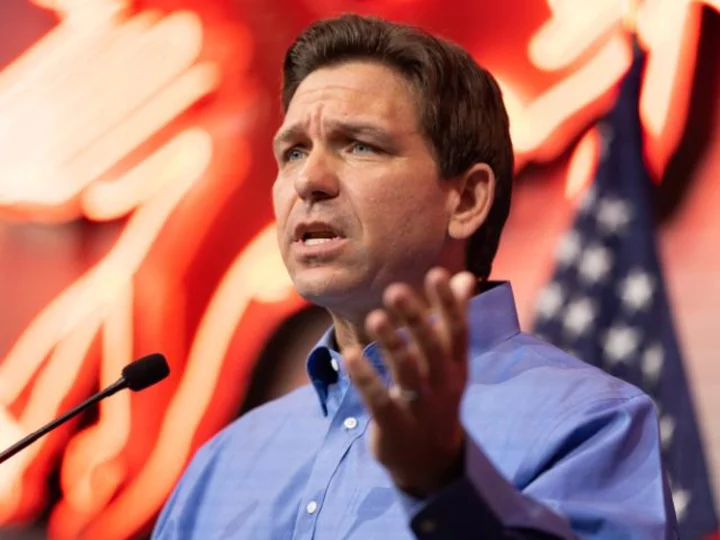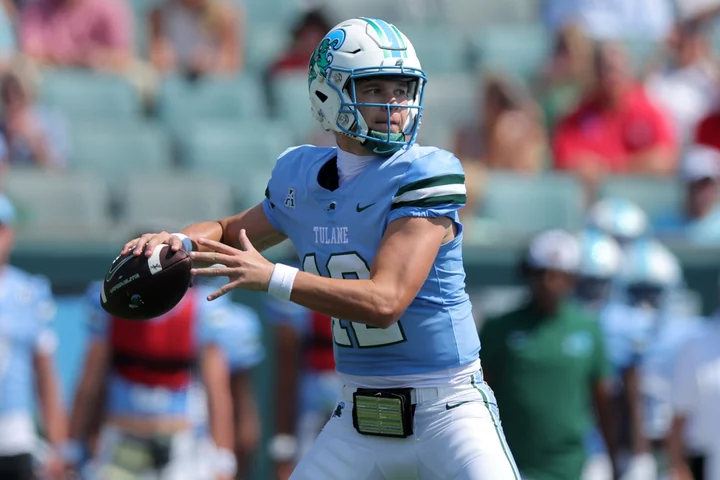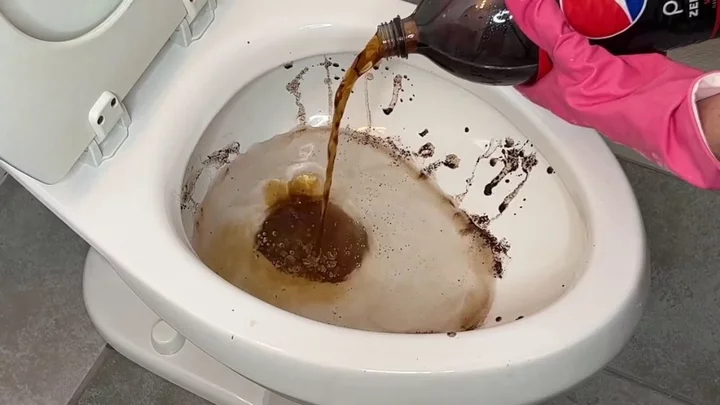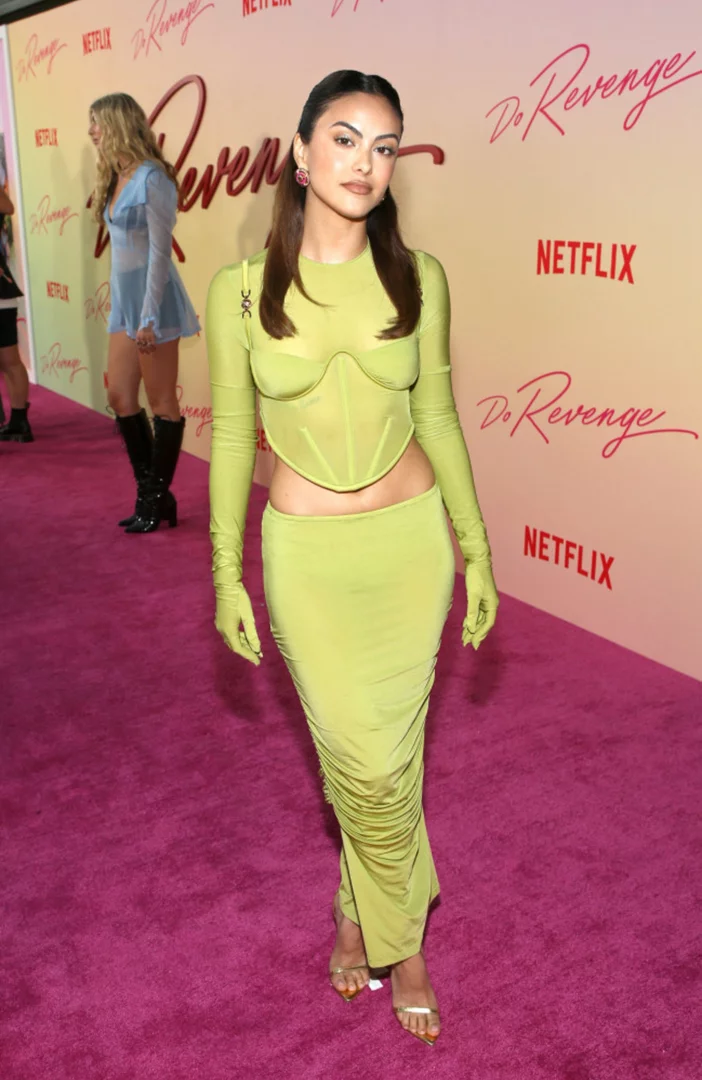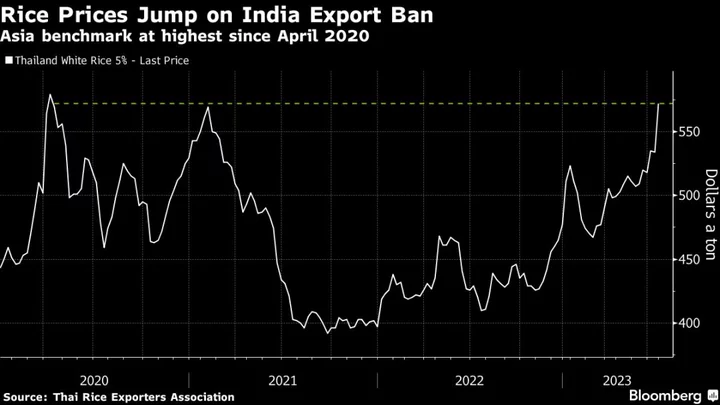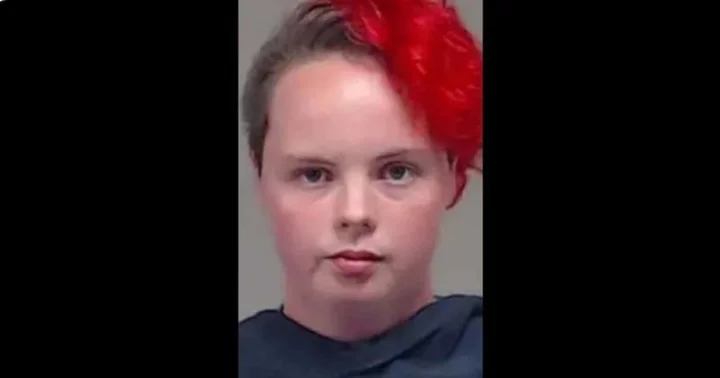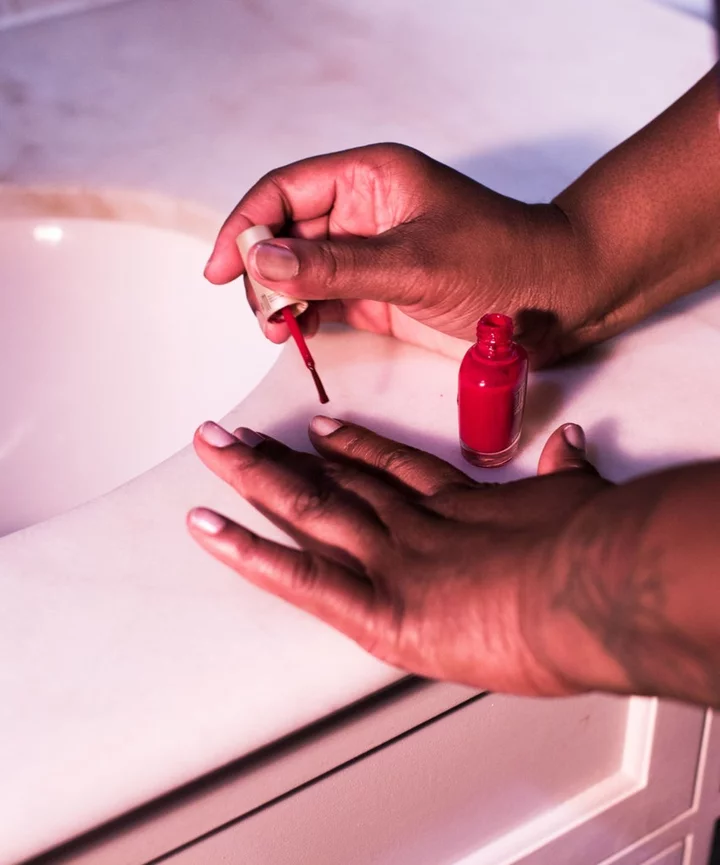Florida Gov. Ron DeSantis has said little publicly about the six-week abortion ban he signed this year or about former President Donald Trump.
On Tuesday, he broke his silence on both.
Responding to Trump's recent criticism that Florida's new abortion restrictions were "too harsh," DeSantis shot back, "I was proud to do it. He won't answer whether he would sign it or not."
Abortion is not the only issue where DeSantis has found space to the right of the former president. As he readies a campaign for the White House, DeSantis has staked out positions on guns, immigration and the Covid-19 vaccine that appeal to the most conservative voters in the party.
And it isn't simply rhetoric. DeSantis has championed consequential new laws that will turn Florida into a state where it's incredibly difficult to get an abortion and easy to carry a gun in public, where undocumented migrants are not welcome and doctors with fringe views are free to practice medicine.
Those new laws, pushed through with the help of Republican supermajorities in the state legislature, are part of a larger effort by DeSantis to leverage his political power into policy victories that could outshine any other potential rival in a presidential primary.
The move to outflank Trump comes as the former president is fighting to both maintain his grasp on the conservative voters whose support he once easily commanded as well as broaden his appeal to voters outside of his base. Though polls show Trump with an overwhelming lead over DeSantis, he has lately clashed with some of his staunchest allies -- pastors, anti-abortion groups and gun rights advocates -- as he campaigns for another four years in Washington.
Meanwhile, DeSantis was well-received during an appearance Saturday in Sioux County, Iowa, a deeply red part of the state's northwest corner where Trump won 82% of the vote and evangelical influences run through its politics. Before DeSantis spoke, the invocation included a call to protect children from conception on.
"There's a lot of Trump fatigue," Jim Dean, who hosted the event at his classic car museum, told DeSantis afterward in an exchange observed by CNN. "You know, it just, he just doesn't carry our values in this part of the world. We believe in a lot of his policies, but the value system just isn't there."
But DeSantis' move does not come without risk. Even close allies have privately suggested that the Florida governor is squandering the chance to run as a less divisive Trump and capture moderates and suburban women eager to move on from the former president. They see these attempts to appease the base as unnecessary for a popular leader who has already captured attention through his fight with Disney and clashes over parents' rights in the classroom. Advisers to Trump privately share that assessment, viewing the six-week abortion ban DeSantis signed as too restrictive for much of the country and likely to hurt the Florida governor, particularly with more moderate female voters.
And Democrats on Tuesday provided a prelude of the attacks to come if DeSantis is the GOP nominee. The Democratic National Committee called his abortion ban "extreme" and declared it "rips away women's ability to make their own health care decisions before many even know they're pregnant, threatens to throw doctors in jail, and could force women and young girls to flee the state for care or carry out a medically risky pregnancy."
A handful of deep-pocketed donors have publicly stated their objection to Florida's new abortion law -- which bans the procedure at six weeks with limited exemptions for rape, incest or the health of the mother. However, several DeSantis fundraisers insisted to CNN that most top GOP donors remain firmly behind the governor despite a few public defections.
For his part, DeSantis has stylized himself as a governor who doesn't shy away from divisive issues.
"We made sure to go on offense, and not just be in office like some potted plant," DeSantis told Republicans in Peoria, Illinois, on Friday. "And we also understood that governor executive positions required you, just not to be right on policy, but to exercise leadership."
Abortion and Covid
Heading into 2024, it seemed unlikely any GOP contender could outflank Trump on many social issues, especially abortion. Trump had delivered the most significant victory in the anti-abortion movement's history by way of nominating the three Supreme Court justices who voted to overturn Roe v. Wade.
But lately, Trump has drawn criticism for his reluctance to embrace the next frontier of this fight: national legislation to curb abortion. Last month, Susan B. Anthony Pro-Life America lashed out at Trump for suggesting abortion should be decided at the state level, calling it "a morally indefensible position for a self-proclaimed pro-life presidential candidate to hold." Shortly afterward, the organization's president, Marjorie Dannenfelser, reversed her position after a meeting with Trump at Mar-a-Lago, which she called "terrific." She added in a statement thatTrump opposed late-term abortions and said he reiterated in the meeting that he believes any federal abortion legislation would need to include exceptions in the case of rape and incest as well as if the life of the mother was in danger.
Then, Trump muddled his position again by declining to say at what point in a pregnancy abortion should be outlawed during CNN's town hall in New Hampshire.
"Some people are at six weeks, some people are at three weeks, two weeks," Trump told CNN's Kaitlan Collins. "President Trump is going to make a determination what he thinks is great for the country."
Despite his role in overturning Roe v. Wade, Trump has privately blamed abortion for Republican losses in the 2022 midterms and told advisers he doesn't think it's a winning issue for the GOP in 2024. However, amid his back-and-forth with DeSantis, the former president touted his role in helping deliver the landmark ruling.
"After 50 years of failure, with nobody coming even close, I was able to kill Roe v. Wade, much to the 'shock' of everyone, and for the first time put the Pro Life movement in a strong negotiating position over the Radicals that are willing to kill babies even into their 9th month, and beyond," Trump wrote on Truth Social. "Without me there would be no 6 weeks, 10 weeks, 15 weeks, or whatever is finally agreed to. Without me the pro Life movement would have just kept losing. Thank you President TRUMP!!!"
Dannenfelser told CNN in a statement that the organization expects all presidential candidates "at the very least, honor the will of the American people, and the humanity of the child in the womb by opposing abortions after 15 weeks."
Neither DeSantis' political operation or his gubernatorial staff responded when asked if DeSantis supports a national abortion ban. He has largely avoided discussing the six-week ban and he signed it deep into the night behind closed doors.
On Tuesday, however, DeSantis stood by the law and offered a window in how he could use it to drive a wedge between Trump and anti-abortion voters.
"Protecting an unborn child when there's the detectable heartbeat is something that almost probably 99% of pro-lifers support," he said.
DeSantis signaled early that he intended to track to the right of Trump on at least one issue: the pandemic response.
Though an early and vigorous endorser of the coronavirus vaccine -- once praising its life-saving potential -- his support waned as conservative skepticism intensified. By the end of 2021, DeSantis had called lawmakers into special session to ban vaccine mandates while refusing to say if he had received a booster shot.
More recently, DeSantis has led his state to prevent doctors from facing punishment for taking positions against the vaccine or pushing other opinions out of step with the medical establishment. His own surgeon general, Joseph Ladapo, has faced accusations of doctoring a study that purportedly showed greater risks of the mRNA vaccine and led the state to advise young men against inoculation.
DeSantis' actions have had the effect of undermining one of Trump's signature accomplishments as president, at least in Florida, where vaccination rates have fallen behind other states after taking an early lead. Trump, in turn, seemed to call DeSantis "gutless" for refusing to say if he had been boosted.
In a recent interview, Trump dismissed vaccine conspiracies and stood by the vaccine.
"I was able to get something approved that, you know, that has proven to have saved a lot of lives," Trump said.
Guns and immigration
At the CNN town hall, DeSantis allies cheered on Collins as she prodded Trump over his administration's failure to finish a wall at the US-Mexico border. DeSantis, too, has often said he wants a wall -- a regular reminder that there isn't one despite Trump's many promises.
Last week, DeSantis signed into law a sweeping crackdown of unlawful immigration into Florida designed to deter undocumented individuals from showing up in the state. The bill requires companies with at least 25 employees to check the legal status of workers against a federal database called E-Verify and creates penalties for employers who knowingly employ "unauthorized aliens" -- a measure that immigration hardliners have sought for years with limited success.
Trump as a candidate in 2016 promised to "strengthen and expand" E-verify but later said it was "so tough" to deploy for many employers and it wasn't included in his administration's ill-fated proposal to reform immigration laws.
Trump in New Hampshire also defended his decision as president to unilaterally ban bump stocks, an attachment that enables a semiautomatic rifle to fire sustained bursts of ammunition. Trump deflected a question from a member of the audience about his Second Amendment bona fides by suggesting the National Rifle Association had also supported the ban. The NRA did not return a request for comment.
Never Back Down, a super PAC supporting DeSantis' political aspirations, pounced on the answer. The organization characterized Trump's modest gun safety measure on Twitter as "gun control" and posted a video of the former president seeming to embrace other restrictions on firearms like red flag laws, which allow courts to intervene and remove firearms from people determined by law enforcement to be a threat to themselves or others.
DeSantis, meanwhile, urged lawmakers to lift one of the few restrictions on guns in Florida, a requirement for someone to obtain a permit and training before carrying a concealed gun in public. He said he would go further by allowing the open carry of firearms in public -- a step too far for even Republican lawmakers in his state despite persistent lobbying from gun advocates. DeSantis has also said he opposes the bipartisan legislation passed in Florida in the aftermath of the Parkland high school mass shooting that established the state's red flag law and raised the age to own a rifle to 21.
After he signed the bill to end concealed carry permits, DeSantis said he would "come back for more some time in the future."
Aidan Johnston, the director of federal affairs for the Gun Owners of America, said many people in his organization have mixed feelings about the Trump years. Though he didn't say if the organization would endorse DeSantis, Johnston said, the Florida governor "has demonstrated that he understands the Second Amendment by his words and his actions."

